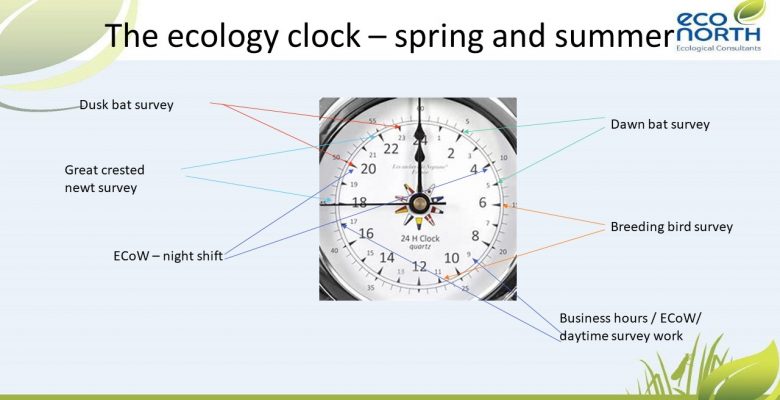During the summer months, EcoNorth places a strong emphasis on the potential risk of fatigue with our team. Longer days result in a higher workload and demand for increased out-of-hours work, which in turn present the Ecologists with a heightened risk of fatigue.
Fatigue refers to issues that arise from excessive working time or poorly designed work or shift patterns. This often results in a decline in mental and/or physical performance arising from prolonged exertion, a lack of sleep or disruption to normal sleeping patterns and an excessive workload.
There are many effects of fatigue but they are traditionally presented in slower reactions, a reduced ability to process information, decreased awareness, lack of concentration, reduced co-ordination and an underestimation of risk.
As ecological consultants, EcoNorth employees are exposed to potential risks of fatigue due to the potential 24 hour nature of works associated with the spring and summer months. An illustration of the potential work items required over a 24 hour period is presented above.
So how can fatigue be prevented?
However teams and individuals manage fatigue, it is important to remain vigilant in preventing it from becoming a risk in the workplace.
To help minimise the onset of fatigue, EcoNorth adopts the following good practice:
- Maintain good communication between team members and effective workload planning, making sure that people are aware of when staff are at work or ‘offline’.
- Operate a flexible working system allowing staff to take back time as they accrue flexi hours.
- Encourage minimum ‘good quality rest or sleep periods’.
- Ensure staff ask the question of themselves: ‘Am I fit for work?’.
- Be aware of external factors such as extreme temperatures.

